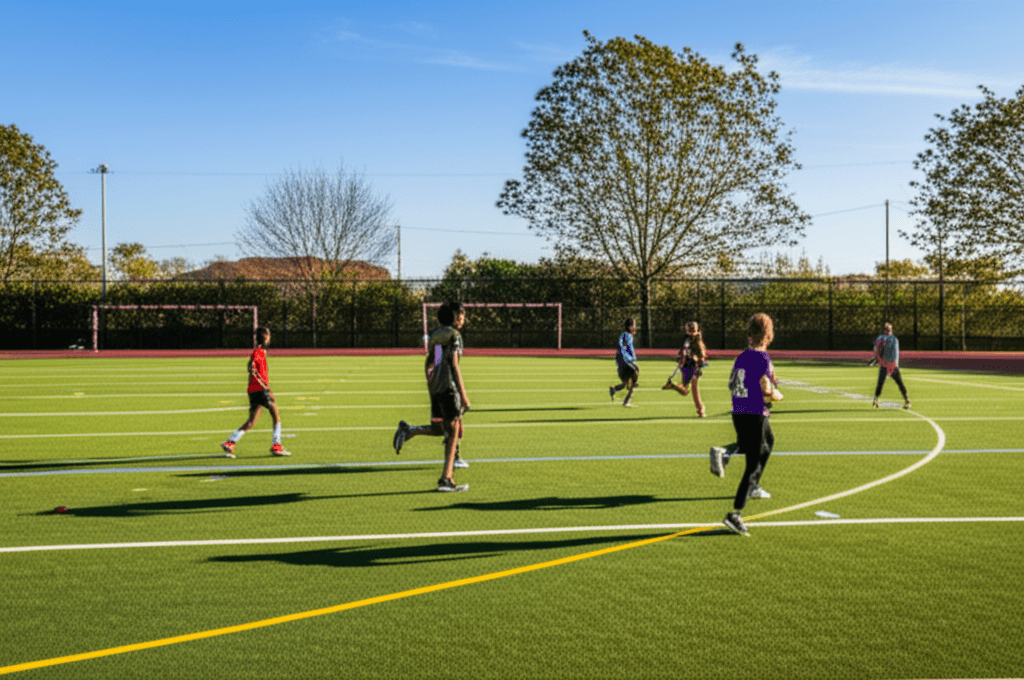Washington, D.C. – U.S. Secretary of Health and Human Services Robert F. Kennedy Jr. and Secretary of Education Linda McMahon are urging schools to prioritize nutrition and physical fitness as foundational elements for student mental health. The secretaries, both members of President Donald Trump’s Cabinet, voiced their perspective in a recent Washington Post op-ed, advocating for a return to “natural sources of mental well-being” and cautioning against what they described as the “overzealous use of therapy” in schools.
Their statements come amidst a national conversation regarding escalating mental health concerns among young people and a legislative push in some states, like Illinois, to mandate universal mental health screenings in public schools.

Reframing the Approach to Student Mental Well-being
Kennedy and McMahon argue that while mental health professionals have necessary contributions, an overemphasis on therapy and diagnosis within the school system can “medicalize the unique and sometimes unpredictable behavior of young children,” potentially creating new stigmas. They assert that mental health struggles often arise from unhealthy life circumstances, suggesting that physical health, diet, and family structure are paramount to an individual’s mental well-being.
Their position aligns with the Trump administration’s “Make Our Children Healthy Again” (MAHA) initiative, which seeks to address the root causes of chronic childhood diseases and restore healthy habits and policies. This strategy includes proposals such as reviving the presidential fitness test, ensuring nutritious school lunches, and scrutinizing the overprescription of pharmaceuticals for child mental health.
The Core Argument: Natural Sources of Mental Health
In their op-ed, the secretaries emphasized that schools should instead focus on “strong families, nutrition and fitness, and hope for the future” as the “natural sources of mental well-being”. They also highlighted the detrimental effects of screen and social media addiction, nutrient-poor foods, and sedentary lifestyles, linking these to increased anxiety, depression, and obesity among children.

The Proven Impact of Nutrition on Mental Health
A growing body of research supports the profound connection between diet and mental well-being, particularly in developing children and adolescents.
Fueling the Brain for Optimal Function
The brain, an organ with high metabolic and nutrient demands, relies on a balanced diet to function optimally. Nutritious foods provide the essential vitamins, minerals, and building blocks for neurotransmitters crucial for mood regulation and cognitive function. Diets rich in fruits, vegetables, whole grains, and healthy fats are associated with improved mental health outcomes, while highly processed foods can exacerbate conditions like depression, ADHD, and anxiety.
Addressing “Hangry” and Emotional Regulation
Poor nutrition or hunger can significantly impair a child’s ability to concentrate, regulate emotions, and cope with stressors. The concept of being “hangry”—irritable due to hunger—illustrates how basic nutritional needs directly influence mood and behavior. Children facing food insecurity are at a higher risk of developing mental health challenges, including depression, emotional dysregulation, and difficulties in social relationships.

The Crucial Role of Physical Fitness for Mental Health
Alongside nutrition, physical activity is widely recognized for its positive effects on mental health, acting as a natural buffer against stress, anxiety, and depression.
Endorphins and Mood Enhancement
Engaging in sustained physical exercise leads to the release of endorphins, brain chemicals that promote feelings of well-being and can help alleviate sadness and anxiety. Regular physical activity can reduce stress by burning off excess energy and tension, fostering a sense of calm and relaxation.
Boosting Self-Esteem and Cognitive Function
Physical activity also plays a role in improving self-esteem and confidence in young people. Beyond emotional benefits, routine physical activity has been associated with improved cognitive performance and academic achievement, although these associations can be small and inconsistent. Studies suggest that moderate to high levels of physical activity are inversely related to anxiety and depression scores in students, with higher activity levels correlating with better mental health outcomes. The World Health Organization recommends at least 60 minutes of moderate to vigorous physical activity daily for youth aged 5-17.

Divergent Views on Mental Health Screenings
While Kennedy and McMahon champion nutrition and physical fitness, their stance also includes skepticism toward widespread mental health screenings in schools. They contend that such screenings can “medicalize” normal childhood behaviors and potentially introduce new stigmas. This perspective contrasts with many mental health experts and organizations, including the American Academy of Pediatrics, which endorse screenings as a critical tool for early identification and intervention of mental health issues, helping to connect vulnerable children to care before a crisis develops.
Experts argue that focusing solely on physical habits like sleep and exercise, while vital, is not a “cure-all” for mental health conditions, and screenings can help identify students who require professional support. Despite the ongoing debate, the call from Secretaries Kennedy and McMahon underscores a concerted effort to integrate holistic health practices into the educational environment as a primary defense against declining student mental well-being.







